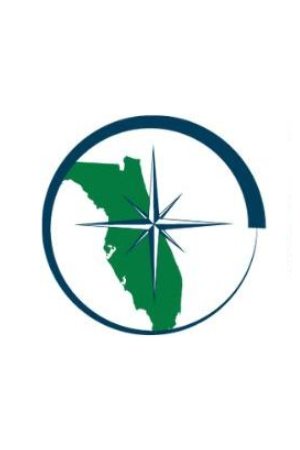In the post-digital revolution world, all industries, from government to healthcare, depend on technological infrastructure to operate. An online software engineering degree can prepare individuals to take on essential roles in developing, implementing, and maintaining software programs.
The demand for software developers is expected to grow by 25% through 2032, according to the Bureau of Labor Statistics (BLS). Software developers earn a median annual salary of $124,200. Software engineers specializing in cyber security are also in demand. The BLS predicts that information security analyst jobs will increase by 32% in the next decade. The median annual salary for this position is $112,000.
Intelligent.com reviewed dozens of programs to create this list of the best online software engineering degree programs. Students can also use this guide to learn more about what they can expect from an online software engineering program, the cost and career outlook for this degree, and how to choose the right program.
What Can I Expect from an Online Software Engineering Degree Program?
Students interested in an online software engineering degree program should first determine what type of degree they’re looking for based on their current education and experience levels:
| Degree level | Number of credits | Degree options | Degree Details |
| Associate | 60 | Associate of Science (AS)
Associate of Applied Science (AAS) |
— Introductory-level courses in foundational software engineering skills and concepts
— Prepares students for entry-level jobs or further study at the bachelor’s degree level |
| Bachelor’s | 120 | Bachelor of Science (BS)
Bachelor of Applied Science (BAS) |
— Introductory- to intermediate-level courses in foundational and advanced software engineering topics
— Curriculum may offer opportunities for specialization — Prepares students for entry- to mid-level jobs and master’s degree programs. |
| Master’s | 30-60 | Master of Science (MS)
Master of Business Administration (MBA) Master of Engineering (M.Eng) |
— Advanced software engineering coursework
— Curriculum may include opportunities for specialization — May include requirements for capstone or thesis projects — Prepares students for high-level jobs, including management and teaching positions. |
Students in undergraduate software engineering programs can expect foundational coursework in relevant areas, including programming languages, operating systems, data structures, software architecture, and mathematics. There may be internship requirements as well. Associate and bachelor’s degrees prepare students for entry-level software engineering positions.
At the master’s level, there are two types of degree programs. Some are designed for individuals with an educational or professional background in software engineering who are looking to build upon their existing skills to pursue advanced positions in research or management. Others cater to individuals with bachelor’s degrees in a different field and need foundational and intermediate skills. Students may also have to complete a thesis or capstone project, depending on the program.
Students should also consider whether they want to pursue a concentration in software engineering. Specialization options for this field include networking, hardware systems, web development, mobile development, video game development, or cyber security.
In terms of what students can expect from an online learning format, it depends on what type of program a student attends. Synchronous programs have scheduled classes that students attend virtually. This format offers more interaction between faculty and students, but it may not be convenient for all students. Asynchronous programs are more flexible, as there are no set class meetings and students can complete their coursework whenever works best for them. This type of program requires students to be comfortable with independent learning and time management.
Why Trust Us
The Intelligent.com Higher Education Team is dedicated to providing students with independent, equitable school and program rankings and well-researched resources. Our expert-driven articles cover topics related to online colleges and programs, paying for school, and career outlooks. We use data from the U.S. Department of Education’s College Scorecard, the National Center for Education Statistics, and other reputable educational and professional organizations. Our academic advisory team reviews content and verifies accuracy throughout the year for the most current information. Partnerships do not influence rankings or editorial decisions.
- Analyzed over 2,000 national, accredited, and nonprofit colleges and universities
- 800+ rankings pages are reviewed and updated yearly
- Content is informed by reputable sources, surveys, and interviews with academic advisors and other experts
- Over 100 data points are reviewed for accuracy and quality throughout the year, including sources
How we rank schools
Our list features the best online Software Engineering degree programs at top colleges nationwide. Each school featured is a nonprofit, accredited institution — either public or private — with a high standard of academic quality for post-secondary institutions.
We evaluated each school’s program on tuition costs, admission, retention and graduation rates, faculty, reputation, and the student resources provided for online students. We collected data from trusted sources like the National Center for Education Statistics, individual school and program websites, school admissions counselors, and other data sources. Then, we calculated the Intelligent Score on a scale of 0 to 100 based on the following criterion:
Academic Quality:
- Admission rate versus enrollment rate
- Retention rate of students who return after year one
- Accreditation status (regional and programmatic)
- Nonprofit status, both private and public institutions
Graduation Rate
- Overall graduation rate
- Total number of currently enrolled students, including diversity metrics
- Student-to-faculty ratio
Cost and ROI
- In-state and out-of-state per-credit tuition rates and fees
- Required credits to graduate
- Earning potential after graduation
- Availability of federal student loans, scholarships, and other financial aid options
Student Resources
- Available student services for online-only and hybrid programs
- On-campus amenities like tutoring centers and the number of libraries
Read more about our ranking methodology.
The Top 17 Online Software Engineering Degree Programs
FiltersInstitution Type
Status
- Intelligent Score
- Alphabetically By University Name
- Acceptance Rate
- Enrollment
- In-state Graduate Tuition
- Out-of-state Graduate Tuition
- In-state Undergraduate Tuition
- Out-of-state Undergraduate Tuition

Southern New Hampshire University
Intelligent Score: 98.68In-state: $9,600
Out-of-state: $9,600
In-state: $18,810
Out-of-state: $18,810
SAT: N/A
ACT: N/A
$320
Online
New England Commission of Higher Education
120

Western Governors University
Intelligent Score: 96.61In-state: $6,380
Out-of-state: $6,380
In-state: $7,500
Out-of-state: $7,500
SAT: N/A
ACT: N/A
$331
Online
Northwest Commission on Colleges and Universities
120

Arizona State University
Intelligent Score: 96.12In-state: $10,710
Out-of-state: $28,800
In-state: $11,720
Out-of-state: $11,720
SAT: 1100-1320
ACT: 21-28
$713
Online
Accreditation Board of Engineers & Technology
120

Saint Cloud State University
Intelligent Score: 95.94In-state: $7,505
Out-of-state: $15,921
In-state: $7,607
Out-of-state: $7,607
SAT: 1000-1250
ACT: 18-24
$341
Online, On Campus
Higher Learning Commission
122

Penn State World Campus
Intelligent Score: 95.28In-state: $15,025
Out-of-state: $24,413
In-state: $22,464
Out-of-state: $22,464
SAT: 1070-1300
ACT: 24-29
$620 - $664
Online
Middle States Commission on Higher Education
126

Champlain College
Intelligent Score: 93.99In-state: $64,010
Out-of-state: $68,575
In-state: $19,635
Out-of-state: $19,635
SAT: 1224
ACT: 28
$328
Online
New England Commission of Higher Education
120

Saint Leo University
Intelligent Score: 93.5In-state: $23,990
Out-of-state: $23,990
In-state: $14,568
Out-of-state: $14,568
SAT: N/A
ACT: N/A
$410
Online
Southern Association of Colleges and Schools Commission on Colleges
120

Eastern Florida State College
Intelligent Score: 92.44In-state: $17,948
Out-of-state: $25,191
In-state: NA
Out-of-state: NA
SAT: Not Required
ACT: Not Required
Resident: $128
Non-Resident: $508
Online
Southern Association of Colleges and Schools Commission on Colleges
120

Bellevue University
Intelligent Score: 90.31In-state: $7,176
Out-of-state: $7,176
In-state: $10,710
Out-of-state: $10,710
SAT: N/A
ACT: N/A
$440
Online
Higher Learning Commission
127

Oregon State University
Intelligent Score: 90.15In-state: $9,846
Out-of-state: $29,445
In-state: $13,257
Out-of-state: $13,257
SAT: 1080-1310
ACT: 21-29
$409
Online
Northwest Commission on Colleges and Universities
180

Kennesaw State University
Intelligent Score: 90.1In-state: $4,450
Out-of-state: $15,704
In-state: $5,328
Out-of-state: $5,328
SAT: 1030-1200
ACT: 19-25
$185
Online, On Campus
Accreditation Board of Engineers & Technology
120

Husson University
Intelligent Score: 89.5In-state: $18,360
Out-of-state: $18,360
In-state: $16,300
Out-of-state: $16,300
SAT: 960-1140
ACT: 19-25
$398
Online
New England Commission of Higher Education
121-124

Limestone University
Intelligent Score: 89.06In-state: $41,055
Out-of-state: $41,055
In-state: $45,700
Out-of-state: $45,700
SAT: 980-1160
ACT: 19-25
$733 - $880
Online
Southern Association of Colleges and Schools Commission on Colleges
120

Davenport University
Intelligent Score: 87.65In-state: $19,320
Out-of-state: $19,320
In-state: $15,696
Out-of-state: $15,696
SAT: N/A
ACT: N/A
Resident: $928
Non-Resident: $627
Online
Accreditation Board of Engineers & Technology
120

Brigham Young University-Idaho
Intelligent Score: 84.86In-state: $5,970
Out-of-state: $5,970
In-state: $7,510
Out-of-state: $7,510
SAT: 1200-1410
ACT: 26-32
Member: $135 Non-Member: $169
Online
Northwest Commission on Colleges and Universities
120

Herzing University
Intelligent Score: 83.32In-state: $34,284
Out-of-state: $34,284
In-state: $31,984
Out-of-state: $31,984
SAT: 1,275 or better
ACT: 17 or better
$591
Online
Higher Learning Commission
120

University of Maryland Global Campus
Intelligent Score: 82.53In-state: $8,824
Out-of-state: $34,936
In-state: $13,158
Out-of-state: $13,158
SAT: 1270-1480
ACT: 30-34
In-State: $318
Out-of-State: $499
Online
Middle States Commission on Higher Education
120
How to Choose the Online Software Engineering Degree Program That’s Right for You
Step 1: Choose your area of study
As you search for an online software engineering degree program, clarify your educational and career goals and practical needs. This clarity helps you focus your search on programs that offer the degree level, curriculum, and accommodations that best suit you.
Typically, students studying software engineering can choose between programs with general curriculums that cover a range of related skills or programs that allow students to specialize in a particular area of software engineering. Common specialization options include mobile app development, website design, network and system security, or coding. If you have an area of specialization in mind, seek out programs that offer this course of study.
In terms of logistical needs, determine if you want a synchronous or asynchronous program and if you’ll enroll in your program full-time or part-time.
Step 2: Research schools and programs
When researching schools, be sure to review their accreditation status, which can impact your eligibility for financial aid, jobs, and future educational opportunities.
You’ll also want to gather as much information as possible regarding programs’ curriculums, tuition and fees, financial aid, admissions requirements, faculty, and more. To help determine if the program meets your needs, ask the following questions:
- What does the curriculum include? Are there options for electives or specializations?
- Is coursework delivered synchronously or asynchronously?
- How do online students interact with classmates and faculty?
- Who are the faculty, and what are their credentials?
- Does the program require hands-on learning experiences like internships or capstone projects?
- Are there professional networking opportunities available for online students?
- What support services are available for online students, such as tech support, tutoring, academic and career advising, and counseling?
Students can usually find this information on the school’s website or by speaking with an admissions counselor or program representative. If available, attending virtual open houses or information sessions can be a helpful way to connect with faculty and current students and learn more about the software engineering program. Students can also follow schools and programs on social media to get insight into the day-to-day life of the department.
Step 3: Prepare for applications and tests
During the research process, confirm the eligibility requirements, admissions procedures, and deadlines for any schools you’re considering. These parameters will vary by school and program, so if you need clarification, speak with an admissions counselor for accurate information. Using a spreadsheet or checklist can be beneficial in keeping track of admissions documents and deadlines.
For a software engineering degree program, applicants must usually submit the following:
- Application and fees
- Official transcripts from all schools previously attended
- Personal essay or statement of purpose
- Letters of recommendation
- Resume/CV
Undergraduate applicants may have to submit SAT or ACT scores, although many schools have implemented test-optional policies. Transfer students must submit official transcripts from the schools they previously attended so their new institution can evaluate and accept applicable credits.
Students applying to a master’s in software engineering program may have additional requirements, including a bachelor’s degree in software engineering or a related field; relevant undergraduate coursework; a minimum undergraduate GPA, or prior work experience. These programs may also require GRE scores or an interview as part of the application process.
Additional requirements for international applicants include official transcript evaluations and ESL test scores.
Step 4: Select your program
Once you’ve gathered sufficient information about potential programs, choose the ones that best meet your needs and submit your applications. There isn’t a ‘right’ number of schools to apply to; some students submit several applications to increase the odds of acceptance, while others concentrate on one or two programs. If you’re applying to multiple programs, remember to budget for application fees or request fee waivers.
After receiving admission offers, do another round of comparison based on cost, financial aid awards, curriculum, and logistical needs to select which program you’ll attend.
Step 5: Determine how you’ll pay for your degree
As part of your research into schools and programs, you should also collect information about how much a program costs (including fees) and what financial aid options the school has available. You can get this information from the school’s website or by contacting their financial aid office.
There are two types of financial aid available — need-based and merit-based. For need-based financial aid, students must complete the Free Application for Federal Student Aid (FAFSA). Schools use this application to determine students’ eligibility for federal student loans and need-based scholarships, grants, assistantships, and work-study. Schools and outside organizations also offer scholarships, grants, and fellowships based on students’ achievements and aptitudes.
Students who are working while enrolled in an online software engineering degree program can inquire about employer tuition assistance benefits. Active-duty military members and veterans may be able to get discounted tuition or use GI Bill benefits to pay for their degrees.
Still Looking for the Right Fit? Discover Similar Programs
Software engineering is just one degree option for students interested in computers and information technology. Here are some other related degree programs that are worth exploring.
- Online Associate in Computer Science
- Online Computer Science Degrees
- Online Information Technology Degrees
- Online Bachelor’s in Network Administration
- Online Master’s in Computer Engineering
- Online Master’s in Computer Science
- Online Master’s in Information Systems and Technology
What Can I Do With an Online Software Engineering Degree?
Career outlook
An online degree in software engineering provides students with a solid foundation of relevant hard and soft skills to prepare for multiple professional opportunities.
Software engineers develop, build, implement, and maintain applications and systems across industries. They may work for a software development company (possibly in a sub-field like mobile app development or video game development) or housed within an IT department at a company. Through experience and education, software engineers can rise to management or executive positions or find post-secondary teaching opportunities.
The job outlook for the field is strong, with the BLS predicting faster-than-average growth in the computer and IT sector through 2032. According to the agency, roughly 377,500 job openings will be available annually in the next decade.
- Computer support specialists — Individuals in this entry-level position test and evaluate network systems, perform network maintenance, and help computer users directly.
- Median annual salary: $59,600
- Projected employment growth (through 2032): 5%
- New jobs projected: 66,500 annually
- Web developers — Website developers create and maintain websites, which may include both technical and design elements of websites or just focus on one aspect of web development. Depending on the specific criteria for the position, students may be able to pursue web developer jobs with an associate or a bachelor’s degree.
- Median annual salary: $80,730
- Projected employment growth (through 2032): 16%
- New jobs projected: 19,000 annually
- Software developers — Software developers use coding knowledge to create computer applications that allow users to do specific tasks and the underlying systems that run the devices or control networks. A bachelor’s degree should qualify students for most software development positions.
- Median annual salary: $124,200
- Projected employment growth (through 2032): 25%
- New jobs projected: 153,900 annually
- Computer network architects — These individuals are responsible for designing and implementing data communication networks, including LANs, WANs, and intranets. Depending on the job, they may oversee small connections between a few offices or cloud infrastructure serving many clients. Computer network architects typically need a bachelor’s or a master’s degree.
- Median annual salary: $126,900
- Projected employment growth (through 2032): 4%
- New jobs projected: 10,200 annually
- Information security analysts — This position focuses on cyber security, with information security analysts planning and implementing measures to protect networks and systems for a company or organization. They monitor networks for breaches, maintain software that protects sensitive information, and develop security best practices, among other responsibilities. Information security analysts typically need a bachelor’s or master’s degree.
- Median annual salary: $112,000
- Projected employment growth (through 2032): 32%
- New jobs projected: 16,800 annually
Online College/Degree Scholarship Database
Intelligent Scholarship Finder Tool
"A Helping Hand" Scholarship
Award Amount: $500
Due Date: January 31, 2025
"Follow Your Own Path" Essay Scholarship
Award Amount: $500
Due Date: January 31, 2025
"Tuition Solution" Scholarship for STEM Students
Award Amount: $500
Due Date: January 31, 2025
$25k "Be Bold" No-Essay Scholarship
Award Amount: $25,000
Due Date: Closed for 2024
(ISC) Graduate Cybersecurity Scholarship
Award Amount: $5,000
Due Date: Closed for 2024
(ISC) Women in Information Security Scholarship
Award Amount: $5,000
Due Date: Closed for 2024
A.C. "Kate" & Leo Joseph Merlone St. Dominic Catholic Church of Saginaw Member Scholarship
Award Amount: Varies
Due Date: Closed for 2024
A.C. "Kate" & Leo Joseph Merlone Teaching Scholarship
Award Amount: Varies
Due Date: Closed for 2024
a/e ProNet David W. Lakamp Scholarship
Award Amount: $5,000
Due Date: Closed for 2024
AAAE Native American Scholarship
Award Amount: $1,500
Due Date: March 15, 2025
Frequently Asked Questions About Online Software Engineering Degree Programs
Should I get a software engineering degree in person or online?
In-person and online software engineering programs each have advantages and disadvantages. The best one for you ultimately depends on individual needs and learning preferences.
The key pro of online programs is that they’re more flexible than in-person programs. Depending on the delivery format, students in online programs may be able to complete all their coursework according to their own schedule. Students in synchronous programs may have to attend classes at designated times but can log in from anywhere. Online programs also make learning accessible to those who don’t live near a university or need a different type of learning environment.
In-person programs require students to be in a specific place and time to learn. This format allows for more interaction between students and faculty than online classes and may best suit those who learn through discussion and hands-on activities. Students needing additional learning support may also want to consider an in-person program to keep them accountable and motivated.
How do I apply to an online software engineering degree program?
First, visit the school’s website or speak to an admissions counselor to confirm the application requirements, procedures, and deadlines for the programs you’re considering.
You’ll likely submit your application and supporting materials for online programs through an application portal on the school’s website. Undergraduate students also have the option to use the Common App to apply to multiple programs.
Before applying, students should also confirm that they meet the basic eligibility requirements for their programs. Most undergraduate programs have limited requirements, such as a minimum high school GPA or standardized test scores. Eligibility requirements are more common at the graduate level. Students applying for an online master’s in software engineering may need to have a bachelor’s degree or coursework in software engineering, a minimum undergraduate GPA, or prior work experience.
What is the average cost of an online software engineering degree?
According to the National Center for Education Statistics (NCES), average undergraduate tuition was $9,596 at public universities and $37,222 for private universities during the 2021-22 academic year. Meanwhile, tuition for graduate students averaged $12,394 at public schools and $26,621 at private institutions.
Students should speak to a financial aid representative for the most accurate information about what a degree program will cost. In addition to tuition, most online degree programs charge additional fees for things like virtual classroom technology, tech support, or library resources. Students must also factor personal tech like computers, microphones, webcams, and internet access into their budget.
Students should also be mindful that where they live might impact how much they pay. Public universities typically charge resident students a lower tuition rate than students who reside in a different state, although, for online programs, some schools will charge a flat rate. Private universities charge all students the same tuition regardless of where they live.
How long does it take to complete an online software engineering degree program?
Credit requirements and enrollment status will determine how long a student can complete their online software engineering degree program.
The more credits a program requires, the longer it will take to complete. For example, for full-time students, a 120-credit bachelor’s program will take four years to complete, while a 60-credit associate degree will take two years, and a 30-credit master’s will take one year. Part-time students can typically expect to add one to two years to their program completion time.
Some options can reduce the amount of time students spend earning their degree. Accelerated programs have academically rigorous curriculums that condense all coursework into a shortened time frame. These programs suit highly motivated students who want to complete their degree quickly. Another option is a “4+1” program that allows students to earn a bachelor’s and a master’s in software engineering in five years of full-time study.
Is an online software engineering degree worth it?
There are numerous benefits to earning an online software engineering degree, but alternative options are also worth exploring.
Based on the career outlook, software engineers will be in high demand for the foreseeable future as individuals and organizations increasingly rely on software and systems for their devices. Computer and information technology can be lucrative, with a median annual salary of $100,530. The more advanced an individual’s degree, the more they earn, according to the BLS. Unemployment rates are also lower for individuals who have post-secondary degrees.
However, a full degree is not necessarily required for all software engineering jobs. Students may also want to consider an online bootcamp or certificate program, which can provide students with targeted skills and knowledge at a faster pace and lower cost.

